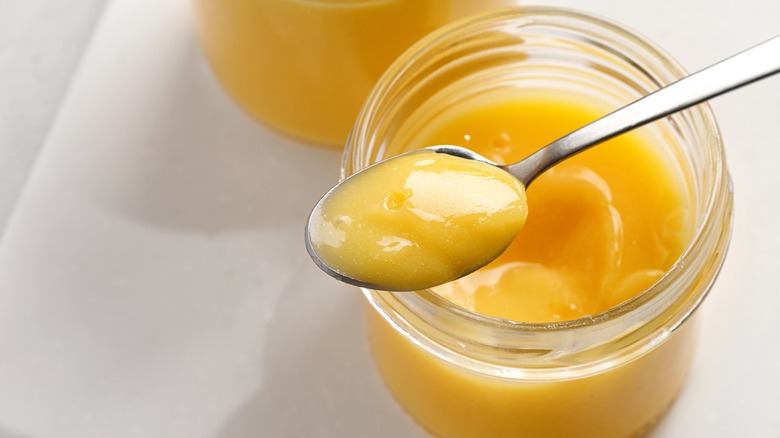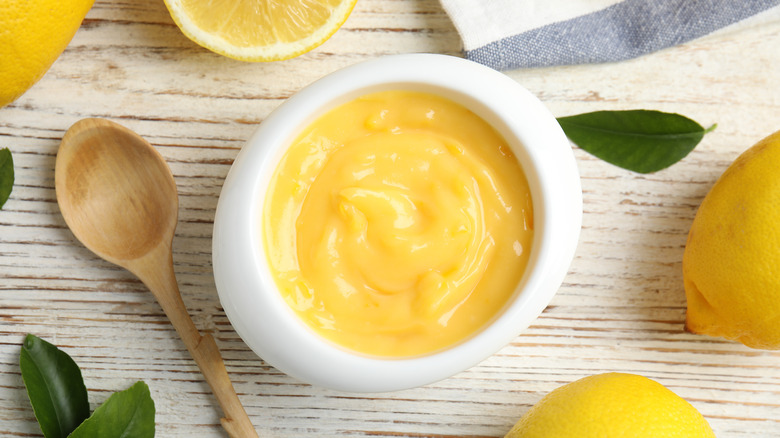The Important Reason You Should Cook Lemon Curd Over Low Heat
When life gives you lemons, you can make so much more than lemonade. According to Martha Stewart, options for the popular citrus are seemingly limitless, as lemons have the ability to complement both sweet and savory dishes with a tangy twang.
Although cooking with lemons requires a few steps, learning how to harness the citrus is well worth your time. Once you learn how to properly juice and zest a lemon, you'll be able to apply those skills to any number of desserts and dishes — many of which call for lemon curd.
A creamy mixture of fresh lemon juice, butter, sugar, and eggs, per Fine Cooking, lemon curd is a central ingredient in tarts and pies. Perfect for breakfast, brunch, or tea time, the tangy spread is also commonly found smeared atop toast or cake. At first bite, lemon curd may seem fancy or complex, but it's actually not too difficult to make from home. Beyond the curd's ingredients, all you need is patience.
Cook lemon curd on low to ensure a consistent texture
The secret to mastering a lemon curd is perfecting its texture, and the secret to perfecting that texture is patience. According to the Kitchn, lemon curd can be cooked in a multitude of ways: simmered in a double boiler, spun in a microwave, or combined in a blender (believe it or not, this method cooks the curd so no need to worry about getting sick from eating raw egg).
Many recipes, however, call for the classic stovetop preparation, which requires a little skill to master. Per Southern Living, you'll want to be careful to cook your lemon curd on low heat while whisking continuously. If impatience gets the better of you, you'll risk burning your dessert; a too-hot pan may scorch parts of the eggy base, incorporating burnt bits into what's supposed to be a smooth, uniform curd. Cooking on low heat helps ensure consistency and will leave you with a cohesive, bright yellow spread free of dark specks and burnt flavors.
Beyond temperature and timing, other factors may also influence the quality of your curd from the moment you begin to mix. When adding in your butter, consider using a salted version for a well-balanced flavor, minus the grit. And be sure to chill your butter ahead of time for that perfect glossy finish.

